Persatuan Sahabat Wanita Selangor
Persatuan Sahabat Wanita (Friends of Women Organisation) is a women workers’ support group began in 1984. We first started working with plantation workers, electronic workers and domestic workers from way back then. Most were women and we worked on health and safety issues with these workers. These workers were not allowed to unionise. We have worked in the informal sector, domestic workers (maids) who do not come under the Employment Act and thus do not get benefits like EPF (Employee Provident Fund) – retirement benefits. Some of the domestic workers, after learning from our...
The Malaysian Bar (Badan Peguam Malaysia)
Who are we The Malaysian Bar is a creature of statute established under the Advocates and Solicitors’ Ordinance 1947 which ordinance was subsequently repealed by the Legal Profession Act 1976. It is an independent Bar whose aim is to uphold the rule of law and the cause of justice and protect the interest of the legal profession as well as that of the public. The legal profession in Malaysia is a fused one with a membership of approximately 12,000 members and its membership is increasing by 10 -15% annually. Each advocate and solicitor is automatically a member of the Malaysian Bar so...
Yayasan Salam Malaysia
Yayasan Salam Malaysia, established in 1997, was founded with a simple philosophy: to promote the spirit of voluntarism in humanitarian and disaster relief events. Their goal is to create a more just and equitable environment, fostering dignity and fulfillment for people everywhere. Yayasan Salam believes in the power of volunteer work to bring about positive change and build stronger communities through sharing, helping, and caring. They offer Malaysians the opportunity to contribute to civil society by serving as volunteers, both locally and internationally. SALAM volunteers...
Yayasan Pembangunan Ekonomi Islam Malaysia (YAPEIM)
Yayasan Pembangunan Ekonomi Islam Malaysia (YaPEIM) is a foundation established by the Federal Government on October 13, 1976, and incorporated under the Trustee (Incorporation) Act 1952. YaPEIM is a self-sustained institution that focuses on socio-economic development of the Ummah (Muslim community). It operates under the tagline #IngatKebajikanIngatYaPEIM and is committed to enhancing the welfare of the Ummah through the implementation of three main initiatives: Welfare, Socio-Economic, and Entrepreneurship under the socio-economic development and charity (amal jariah) pillar. YaPEIM...
United Nations Development Programme Malaysia
Who are we UNDP’s technical assistance programmes date from the country’s independence in 1957. In the early years, assistance focused largely on capacity building in technical education and training, as well as health and nutrition. Consistent with this, UNDP supported projects that expanded the physical and social infrastructure, modernised and diversified the agricultural sector, increased manufacturing activities and promoted foreign investments. Up until 1972, UNDP’s involvement was on a project-to-project basis, responsive to sectors and areas of priority as determined by the...
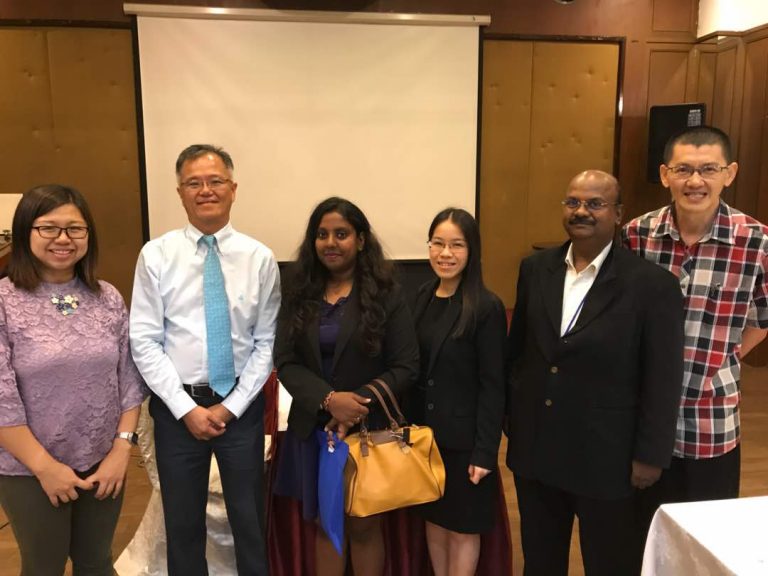
Transparency International Malaysia (TI-M)
Transparency International Malaysia (TI-M) is an independent, non-governmental and non-partisan organisation committed to the fight against corruption. TI-M is registered with the Registrar of Societies Malaysia and is the accredited National Chapter of the Berlin-based Transparency International. Vision TI-M is committed to the achievement of a socially just, and equitable society within a sustainable, plural democracy that is free of corruption. Mission TI-M will, as the lead national anti-corruption organisation, promote the culture of zero corruption in public service, the private sector...
Taiping Peace Initiative
History The idea of promoting Taiping as a centre for peace was not arbitrary. Historically, Taiping has been associated with peace since its very inception. In fact, the word ·Taiping· comes form the Chinese phrase for ·Everlasting Peace.· In the mid-19th century, it was discovered that the area was rich in tin deposits. Chinese miners were brought in to mine the ore. In time, two rival clans emerged, the Hai San and the Ghee Hin who competed for water resources, which became known as the Larut wars. This disruption of harmony forced local leaders to seek help of the British to quell the...
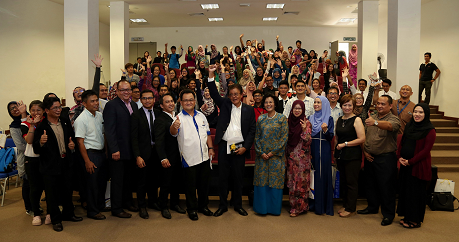
Suruhanjaya Hak Asasi Manusia Malaysia (SUHAKAM)
The Human Rights Commission of Malaysia (SUHAKAM) was established by Parliament under the Human Rights Commission of Malaysia Act 1999, Act 597. The Act was gazetted on 9 September 1999. The inaugural meeting of SUHAKAM was held on 24 April 2000. The initiative to set up a national human rights institution in Malaysia began with Malaysia’s active participation in the United Nations Commission on Human Rights (UNCHR) in 1993-95 when it was elected as a member of the Commission by the United Nations Economic and Social Council. Malaysia was honoured in 1995 with the election of the leader...
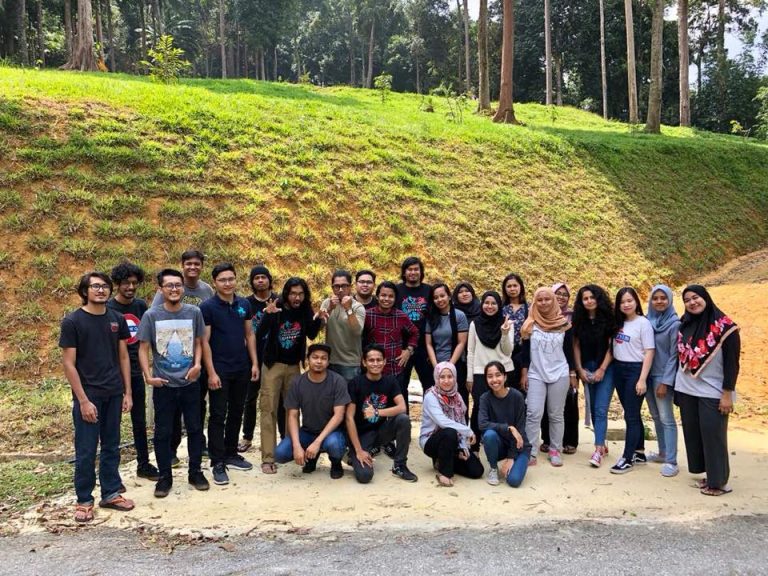
SUARAM
SUARAM (Suara Inisiatif Sdn Bhd) is guided by the Memorandum and Articles of Association pursuant to the Companies Act, 1965. We believe in the universality, interdependence and indivisibility of all rights: civil, political, economic, social and cultural. SUARAM specializes in civil and political rights such as educational programs and trainings on freedom of expression, peaceful assembly and association; right to fair trial; freedom from torture, extra-judicial killings and cruel punishment; public accountability and genuine democracy-building. Together with other civil organisation and...
South East Asian Central Banks (SEACEN) Research and Training Centre
The South East Asian Central Banks (SEACEN) Research and Training Centre was first established as a legal entity in 1982 with eight member central banks/monetary authorities which has since grown to eighteen members in 2012. Since its inception in the early 1980’s, The SEACEN Centre has established its unique regional position in serving its membership of central banks in the Asia-Pacific region through its learning programmes, research work, and networking and collaboration platforms for capability building in central banking knowledge. Over the years, SEACEN has built a wide network base,...
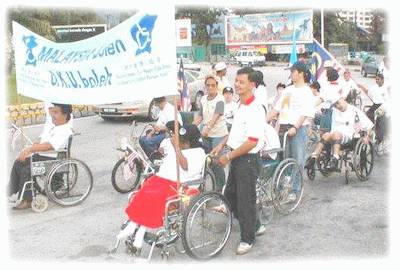
Society of the Disabled Persons Penang (SDPP)
Who are we Society of the Disabled Persons, Penang (SDPP ) was established in 1988 by a group of disabled people in Penang, Malaysia. This organisation is self-motivated and manage by the members itself. Over the years, SDPP has been striving hard to fight for the rights of disabled people as well as guiding and encouraging many disabled people, particularly those staying in Penang, Malaysia to live up to their life as to enjoy the rights and the freedom that they should gain in all aspects of life. We are also committed to make Penang accessible to the elderly and the disabled. Until today,...
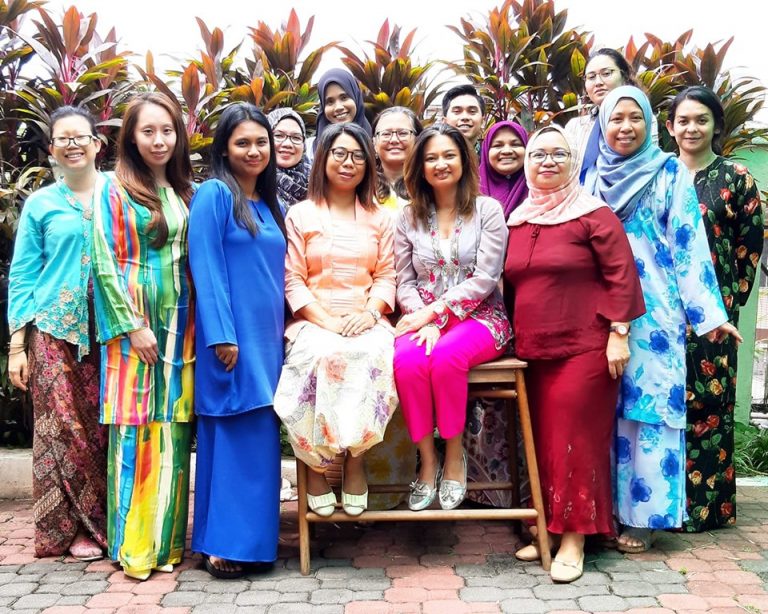
Sisters in Islam (SIS)
It began with a question. If God is just as Islam is just “ why do laws and policies made in the name of Islam create injustice? This was the burning question faced by the founding members of Sisters in Islam (SIS) when they began their search for solutions to the problem of discrimination against Muslim women in the name of Islam. The group first assembled in 1987 within the Association of the Women Lawyers (AWL) when several women lawyers and their friends came together under the Association’s Shariah subcommittee to study problems associated with the implementation of new Islamic...
Southeast Asian Centre for e-Media (SEACeM)
The South-east Asian Centre for e-Media (SEACeM) which was launched in 2004 has provided consultancy to more than a dozen of independent media, and has trained more than 200 civil society groups. SEACeM is committed to be the catalyst for societal change by building the capability of freedom of expression champions and human rights defenders in this region. The mission of SEACeM is as follows: “Building capability for the use of electronic media technologies by South-east Asian independent media and civil society organizations towards the enhancement of press freedom, democracy and human...
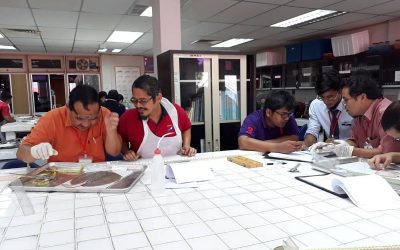
Marine Fishery Resources Development And Management Department
The establishment of the Marine Fishery Resources Development and Management Department (MFRDMD) was approved by the (SEAFDEC) South-east Asian Fisheries Development Center Council at its Twenty-third Meeting in Bangkok in December 1990, and formalized in April 1992 as the Fourth Department of SEAFDEC. This marks an important event in the history of the Center with the appointment of its first Chief and Deputy Chief. It demonstrates the continuous commitment of SEAFDEC and its Member Countries to the changing needs and emphases in the development and management of the marine fisheries in the...
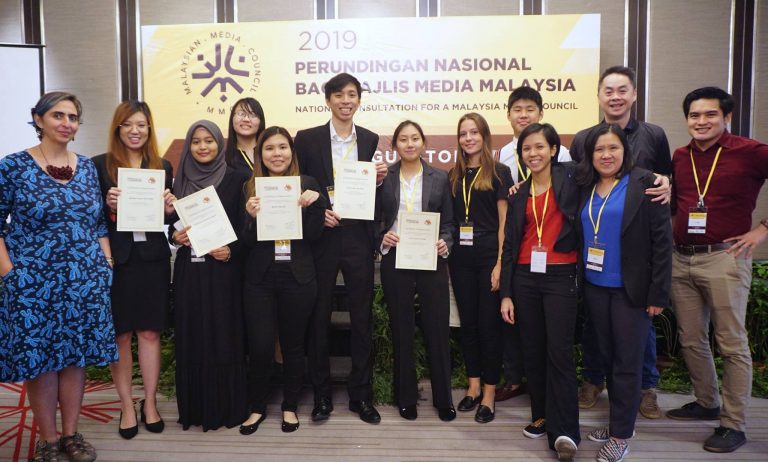
Centre for Independent Journalism, Malaysia (CIJ)
CIJ’s Vision The Centre for Independent Journalism, Malaysia (CIJ) is a non-profit organisation that aspires for a society that is democratic, just and free where all peoples will enjoy free media and the freedom to express, seek, and impart information. Background In response to the 1998 political crisis in Malaysia, a group of five journalists, writers and activists started a project to fill in the demand for critical analysis of the political issues confronting the public. They created a website, saksi.com (“saksi” is Malay for “witness”), which grew to become an important source...

 Support Groups
Support Groups